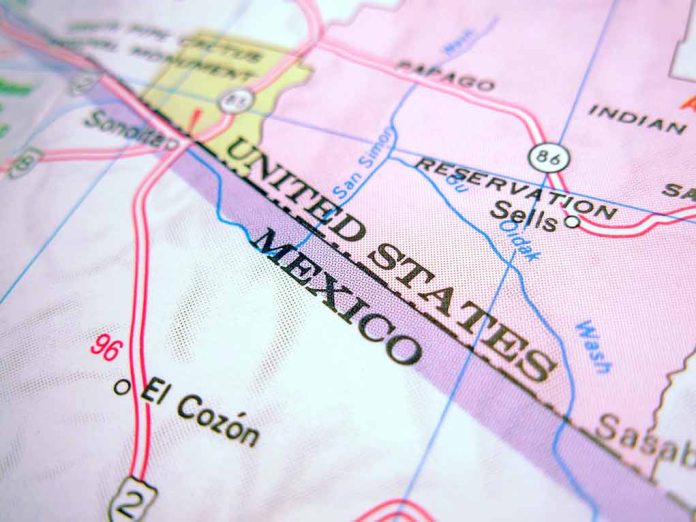
Mexican President Claudia Sheinbaum is strategizing to align with the U.S. for deportation of non-Mexicans, emphasizing national priority amidst global immigration challenges.
At a Glance
- President Sheinbaum wants non-Mexicans deported directly to their native countries.
- Trump plans mass deportations of undocumented immigrants.
- Mexico prioritizes its citizens while maintaining migrant solidarity.
- Bahamas rejected U.S. deportation requests due to resource issues.
Sheinbaum’s Strategic Proposal
President Claudia Sheinbaum has announced intentions to work with the United States for a new immigration strategy. This approach would see non-Mexican immigrants deported directly to their countries of origin rather than transiting through Mexico. This policy move aligns with incoming President Trump’s focus on mass deportations of undocumented immigrants. By taking these decisive steps, Sheinbaum aims to focus resources on assisting returning Mexican nationals while still showing support for global migrant needs.
Sheinbaum further argues that such a strategy will help ease the logistical and diplomatic challenges involved in returning undocumented immigrants. Her plan underscores the importance of each country accepting its citizens and stresses Mexico’s willingness to manage immigration effectively while respecting international human rights obligations. The support from Sheinbaum provides a critical voice from Mexico, ensuring orderly processing of repatriations in a manner supportive of U.S. immigration objectives.
Mexico's president said Thursday she will ask President-elect Donald Trump to deport non-Mexican migrants directly to their home countries, rather than dumping them at the Mexican border. https://t.co/hQb6n1i9FF
— The Washington Times (@WashTimes) December 6, 2024
Challenges in the Execution
Despite the promising commitment from Mexico, several obstacles remain in implementing these deportation agreements. A significant issue is the refusal by certain countries, such as the Bahamas, to accept deported individuals. This refusal stems from limited operational capabilities and resources required to safely process and integrate returnees. Sheinbaum’s proposal aims to streamline the deportation process but must contend with the realities of resource-strapped nations prioritizing domestic challenges over international immigration issues.
Also of concern is the complexity involved in securing agreements with various governments reluctant to repatriate their citizens. These governments often show resistance due to socio-political dynamics and economic constraints. Trump’s team is exploring alternatives, negotiating with countries open to hosting immigrants while tackling the diplomatic and logistical elements involved in broad-scale deportation processes.
Mexico's president on Trump deportation plans: Immigrants are not 'criminals' https://t.co/ImkpgZBQtZ
— Los Angeles Times (@latimes) November 21, 2024
Broader Implications for Bilateral Relations
The steps being undertaken by Sheinbaum and the Trump administration may redefine U.S.-Mexican relations concerning migration management. The emphasis on collaboration highlights a shared interest in addressing illegal immigration while respecting each nation’s priorities and capacity. During Trump’s previous term, Mexico contributed to the “remain in Mexico” protocol, emphasizing a history of cooperative engagement on immigration policy.
Ultimately, Sheinbaum’s policy seeks not only to safeguard Mexico’s interests but also to extend goodwill, bridging potential divergences between Mexico and the United States. This cooperative paradigm may become instrumental in fostering mutual understanding and effective immigration governance as both countries navigate the complexities of cross-border migration management.














